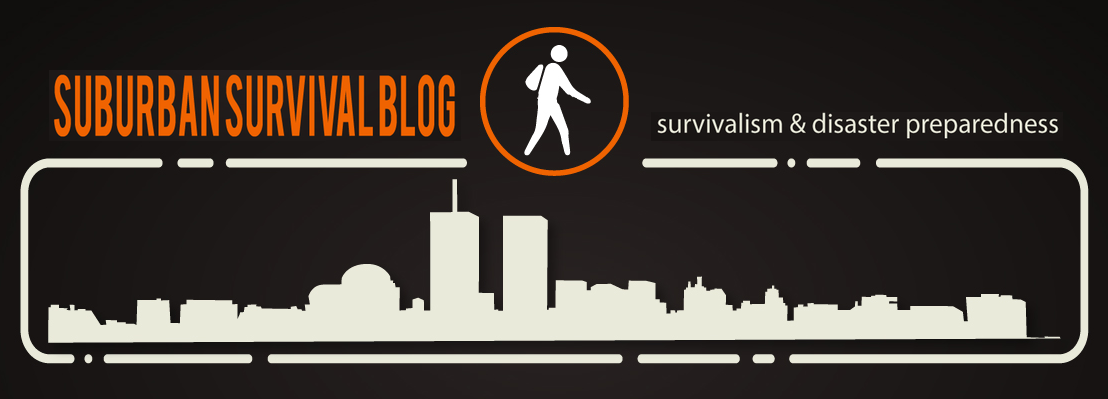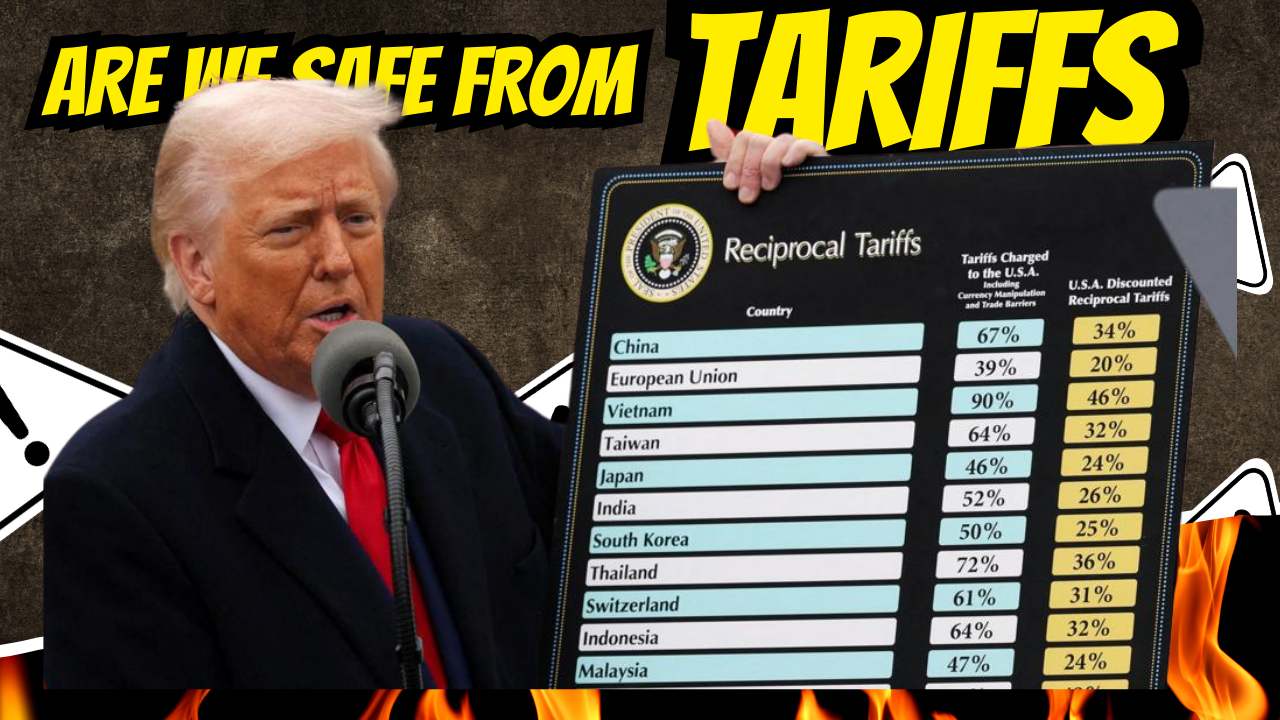In recent years, the world has witnessed a number of geopolitical tensions that threaten to escalate into full-blown conflicts. With the United States at the edge or involved politically with regard to many of these tensions, many of us are wondering whether we are on the brink of a nuclear war with Russia, China, and the Middle East. The stakes are high. Most recently the Iranians continue to deny they are enriching uranium. And the consequences of such a conflict with any one of the aforementioned countries would be catastrophic for the entire world. I’ve been trying to closely follow the ongoing tensions between the United States, Russia and the Ukrainian, China wanting to lead in strength and power, and the middle east’s race to become a nuclear power… I’m going to try to provide you with an unbiased analysis of the current state of affairs, based on what I see and read in my limited time between work, thinking about what to write, raising a 6 year old kiddo prepper, and balancing family. So, let’s dive into the facts and explore whether the United States is truly on the brink of a nuclear war with Russia, China, and the Middle East.
Understanding the Current Geopolitical Tensions (high level)
The current geopolitical tensions between the United States, Russia, China, and the Middle East are complex and multifaceted. There are many factors at play, including territorial disputes, economic competition, ideological differences, and historical grievances. In recent years, these tensions have been exacerbated by a number of factors, including the rise of nationalism, populism, and authoritarianism around the world, as well as the increasing influence of new technologies like social media and cyber warfare.
At the heart of these tensions is a struggle for power and influence on the global stage between the four countries. The United States has long been the dominant superpower, but in recent years, Russia and China have emerged as major rivals. The Middle East, meanwhile, remains a volatile region with a long history of conflict and instability. It’s no secret regardless of the side of the political isle you are on, if you are paying attention the United States is losing ground as a superpower, quickly.
Despite the growing tensions, it’s important to note that not all of these countries are enemies of the United States in the traditional rivalry sense. In fact, there are many areas of cooperation and collaboration between the US and its rivals. Unfortunately those relationships are strained, and the parties are somewhat interdependent upon each other. Some of these areas of cooperation are increasingly overshadowed by the more contentious issues, and the risk of conflict continues to grow.
The Role of Nuclear Weapons and Their Impact
One of the most concerning aspects of the current tensions is the role of nuclear weapons. The United States, Russia, and China are all nuclear powers, and the Middle East is home to a number of countries with nuclear ambitions, which will come to fruition in the coming 18 — 36 months. The use of nuclear weapons in a conflict would have catastrophic consequences, including widespread death and destruction, as well as long-term environmental and health impacts. The fear that some of the young and newly nuclear capable countries are a real fear based on the historical, religious, and ideological differences between our countries and citizens.
Nuclear weapons also play a significant role in deterrence. The threat of mutually assured destruction has helped to prevent major conflicts between nuclear powers, but it has also created a dangerous situation in which any miscalculation or miscommunication could trigger a catastrophic event.
Historical Context of US Relations with Russia, China, and the Middle East
To understand the current tensions between the United States and our rivals, it’s important to consider the historical context of our relations. The United States has a long history of rivalry with Russia, dating back to the Cold War. While the relationship between the two countries thawed somewhat after the fall of the Soviet Union, the cold war was never really dead, and tensions have risen in recent years, particularly over issues like Russian interference in the US election and the conflict in Syria.
The relationship between the United States and China has also been complicated. While the two countries have significant economic ties, they also have major ideological differences, particularly when it comes to issues like human rights and democracy. The US has also accused China of engaging in unfair trade practices and stealing intellectual property.
The Middle East has been a source of conflict and instability for centuries, and the United States has been heavily involved in the region for decades. The US has supported a number of regimes in the region, including Israel and Saudi Arabia, while also engaging in military interventions in countries like Iraq and Afghanistan.
Recent Developments and Events Leading to Tensions
In recent years, a number of events have contributed to the rising tensions between the United States and its rivals. Some of the most significant developments include:
- Russian interference in the 2016 US election
- The conflict in Syria and Russia’s support for the Assad regime
- China’s increasing military and economic power, particularly in Asia
- The US-China trade war
- The US withdrawal from the Iran nuclear deal
- The ongoing conflict in Yemen and Saudi Arabia’s involvement
- North Korea’s nuclear program and its efforts to negotiate with the US and South Korea.
These events have all contributed to a growing sense of unease and instability, and have raised concerns about the potential for conflict.
Analysis of the Current State of Affairs
So, is the United States currently on the brink of a nuclear war with Russia, China, and the Middle East? The answer is complicated, and it’s this author’s belief the answer is, possibly. While the risk of conflict is certainly higher than it has been in many years, there are still many factors that could prevent a major escalation as well.
One of the most significant factors is the presence of international institutions and agreements that are designed to prevent conflict. The United Nations, for example, has attempted to play a key role in mediating conflicts and promoting diplomacy. The Iran nuclear deal, while pretty imperfect, was also a significant step toward reducing tensions in the Middle East.
Another factor is the fact that all of the major powers involved have a vested interest in avoiding a catastrophic conflict. While there are certainly hardliners in every country who might push for war, the vast majority of people recognize the devastating impact that such a conflict would have. Albeit, Russia keeps touting their tactical nuclear weapons as an option. It is my opinion this will have a negative effect if Iran or the middle eastern countries racing for nuclear weapons attain their goal.
There are also many factors that could contribute to an escalation of tensions. The rise of nationalism and populism around the world has led to a more confrontational approach to foreign policy, and social media has made it easier for misinformation and propaganda to spread. You know, fake news, etc. The ongoing conflicts in Syria and Yemen, as well as the situation in North Korea, are also major sources of concern.
Potential Scenarios and Outcomes of a Nuclear War
The potential scenarios and outcomes of a nuclear war are difficult to predict, but they are uniformly catastrophic, in my humble opinion. A nuclear war could or would result in the deaths of millions of people, as well as widespread destruction and long-term environmental and health impacts. The economic and social consequences would be devastating, potentially leading to a global depression.
Even in the event of a limited nuclear exchange, the impact would be severe. The use of tactical nuclear weapons, for example, could result in significant civilian casualties and the contamination of large areas of land, that could not be used for decades.
What the US Government is Doing to Prevent a Nuclear War
The US government has attempted to take a number of steps to prevent a nuclear war, including:
- Engaging in diplomacy and negotiations with its rivals (historically)
- Investing in missile defense systems (Not recently though)
- Promoting international agreements and institutions that are designed to prevent conflict (With the exception that Putin didn’t renew the nuclear arms treaty)
- Working with allies to promote regional stability and security. (Again, not so much, recently…)
However, there are also concerns that the Biden administration’s approach to foreign policy is contributing to the rising tensions. Some critics argue that the US is engaging in a more confrontational approach to foreign policy, particularly under the Trump administration, even though the concept of peace through strength was instituted, it was interpreted differently by our rivals.
How the International Community is Responding to the Tensions
The international community has also taken a number of steps to respond to the rising tensions, including:
- Engaging in diplomacy and negotiations that are lackluster at best.
- Working to reduce the risk of nuclear war through arms control and disarmament efforts, even though it feels like the opposite is occurring recently.
However, there are also concerns that the international community is not doing enough to address the underlying causes of the tensions, or paying particularly when it comes to issues like economic inequality and human rights abuses.
Personal Preparedness and What Individuals can do in Case of a Nuclear War
While the risk of a nuclear war is certainly concerning, there are steps that individuals can take to prepare themselves and their families in case of an emergency. These steps may include:
- Creating an emergency plan for you and your family and stockpiling necessary supplies (another blog post is coming on this, I can feel it)
- Staying informed and up-to-date on the latest news and developments
- Knowing where to go and what to do in case of an emergency
- Being prepared to evacuate “if necessary” before your area is affected.
It’s also important to remember that the risk of a nuclear war is still relatively low, and that there are many factors that could prevent a major conflict.
Final Thoughts and Conclusion
In conclusion, the current geopolitical tensions between the United States, Russia, China, and the Middle East are complex and multifaceted. While the risk of a nuclear war is certainly higher than it has been in many years, there are still many factors that could prevent a major escalation. However, it’s important for us all to stay informed and prepared in case of an emergency, and for governments and the international community to take steps to address the underlying causes of the tensions. Call me pessimistic, but I am not confident that the can.
Ultimately, the fate of the world rests in the hands of those who are willing to work together to promote peace, stability, and mutual understanding.
Make sure your mutual assistance group is ready to help each other out.









Is the United States Currently on the Brink of Nuclear War with Russia, China, and the Middle East?
—it has been since the mid 50’s, get use to it.